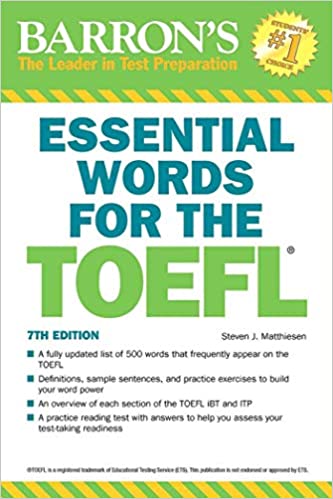Taking good notes is one of the most important skills for success on the TOEFL (and for college) that won’t be directly tested. It’s not a bad idea to take notes on the reading section, but it will be absolutely critical in the listening section and integrated tasks, since many of these contain far more information than anyone could possibly remember in one sitting—unless you’re a genius. If you’re a genius, then congratulations! Maybe you don’t need to read this post. If you’re not, then read on.
Tip #1: Express ideas in few words
One huge error that people make when taking notes is being too careful. They write every word out completely, include small words like “the,” or even include full sentences. There is a clear problem with this approach: you simply don’t have enough time. But also, this can make it hard to find information later. Shorter notes are easier to search through. When you refer to them later, you’ll have no problem finding the information you need.
Tip #2: Use your own words (even in your own language)
It’s a bad idea in class, but when you’re in the middle of a test, no one cares whether you’re using exclusively English or not. If you can rephrase what you heard in fewer words in your own language, then do it! I’m not saying you should write entirely in your native language, but if you can express a thought faster, then that’s a good thing.
Tip #3: Keep moving
The speaker is going to be moving faster than you can write. If you think you are falling behind as you rush to write the last point that was made, it’s usually best to stop that thought in the middle and move on. It’s much easier to remember that partial thought later than to miss a portion of the lecture and have to figure out what the speaker’s talking about now and why.
Tip #4: Use symbols
Never write the word “circle” if you can simply draw a circle. Cause and effect can be shown with arrows. “Decrease,” “fall,” “short,” “cheap,” or even “worse” can all be shown with a down arrow. There are many, many other symbols, of course—use whatever you can think of that’s shorter than writing words!
Tip #5: Only note big ideas and key relationships
Your notes should be structural. In other words, you don’t want to include every detail that’s spoken. You want to hear every detail, of course, but you only have to write the big ideas that help you to remember the small ones. If you try to write everything, you will have trouble keeping pace, and you will not hear some information because you’re still writing the previous details. Make note of relationships between ideas like examples, comparisons, contrasts, and cause and effect. Note when the topic changes. But don’t write every name, date, and location you hear.
Tip #6: Practice, practice, practice!
Note-taking is a skill, and it needs to be practiced. Don’t limit yourself to TOEFL practice questions! Take notes from whatever media you have: a TV show, a TED talk, the book you’re reading, or even a conversation with a friend. Pay particular attention to listening and writing at the same time without getting behind in either.






Leave a Reply